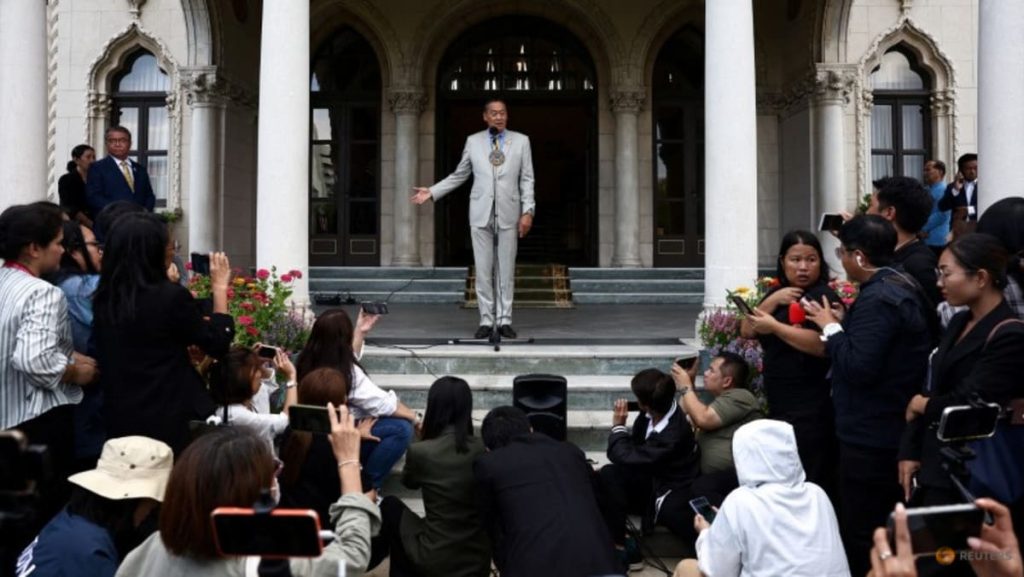Pheu Thai has taken swift action to maintain its political advantage following the dismissal of Thai Prime Minister Srettha by the Constitutional Court. The party’s coalition partners visited the residence of Thaksin, its founder and influential figurehead, to show their support. Political analysts suggest that quick action is necessary to prevent power struggles and squabbles within the coalition. By holding a vote sooner rather than later, Pheu Thai can control the outcome of the house and ensure stability within the government.
The Constitutional Court’s ruling that Srettha had breached ethical standards by appointing Thaksin’s former lawyer to a cabinet post further complicates the political landscape in Thailand. The court’s decision has raised concerns about potential backlash from pro-military lawmakers who may try to block Pheu Thai’s coalition from forming a government. The quick convening of parliament less than 48 hours after Srettha’s dismissal is in stark contrast to the delay that occurred last year after the election, highlighting the uncertainty and volatility in Thai politics.
Last year, lawmakers aligned with the military prevented the anti-establishment election winner, Move Forward, from forming a government. However, they later supported Srettha and Pheu Thai in a second vote. The current situation following Srettha’s dismissal is fraught with challenges and risks, as the balance of power in parliament remains uncertain. Pheu Thai and its coalition partners must navigate these complexities carefully to maintain control and ensure the stability of the government.
Political scientist Thitinan Pongsudhirak emphasized the importance of decisiveness in the current situation, warning that delays could lead to further power struggles and instability. By acting quickly and holding a vote to determine the next prime minister, Pheu Thai can assert its influence and prevent potential challenges from rival factions. The outcome of the upcoming parliamentary vote will be crucial in determining the future direction of Thai politics and the balance of power in the government.
The dismissal of Srettha and the subsequent scramble to form a new government have exposed the underlying tensions and divisions in Thai politics. The influence of Thaksin, despite being in exile, continues to shape the political landscape, with Pheu Thai relying on his support and guidance. The court’s ruling against Srettha has further highlighted the ethical challenges and controversies surrounding political appointments in Thailand, adding to the uncertainty surrounding the government formation process.
In conclusion, the swift actions taken by Pheu Thai and its coalition partners in response to Srettha’s dismissal demonstrate the high stakes and intense competition in Thai politics. The upcoming parliamentary vote will be a critical moment in determining the future leadership of Thailand and the balance of power in the government. As tensions rise and uncertainties persist, the need for decisive and strategic decision-making becomes increasingly important to navigate the complex political landscape and maintain stability in the country.















